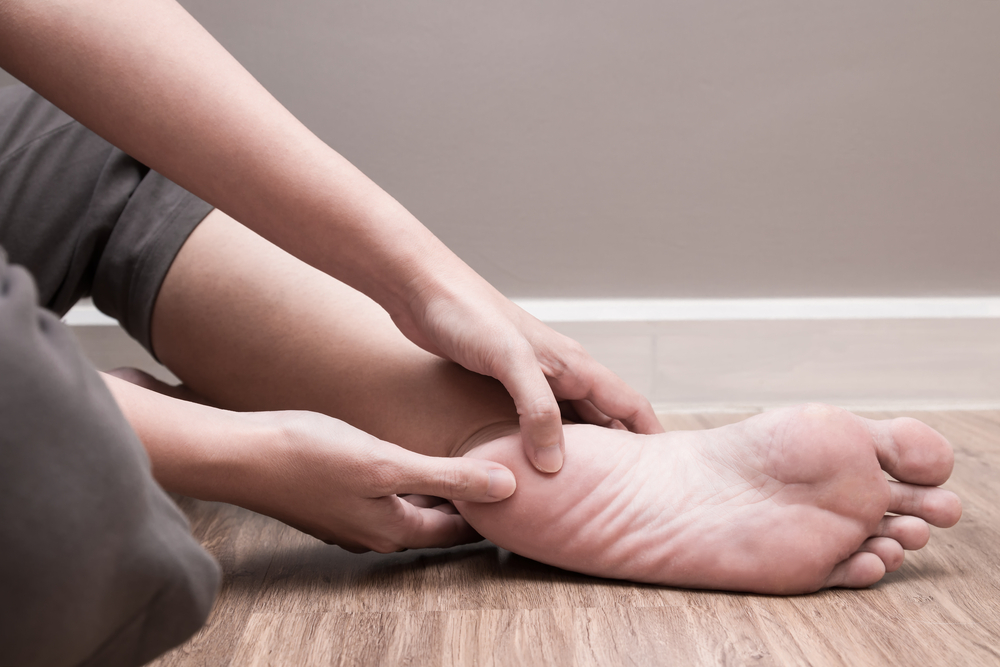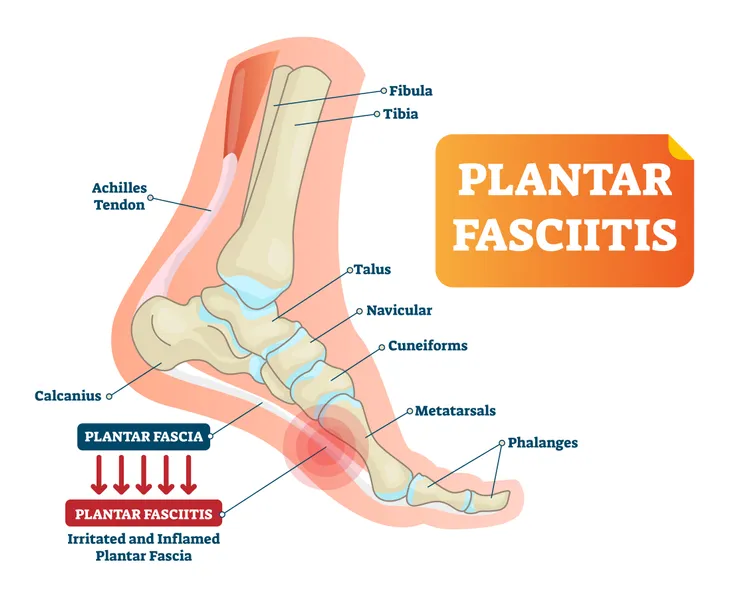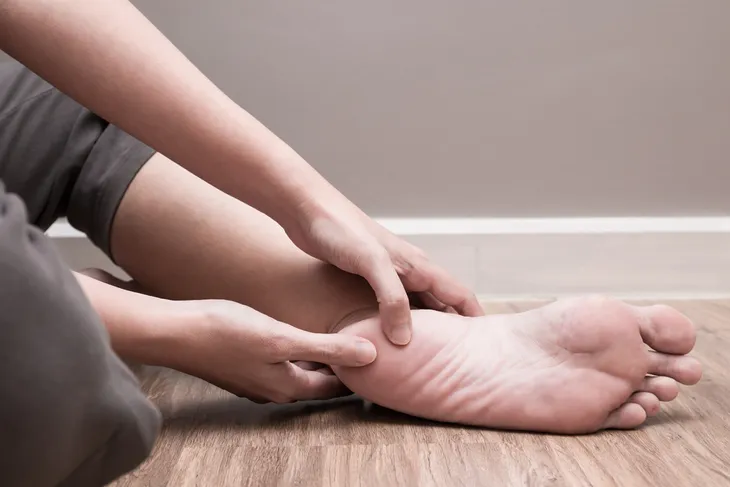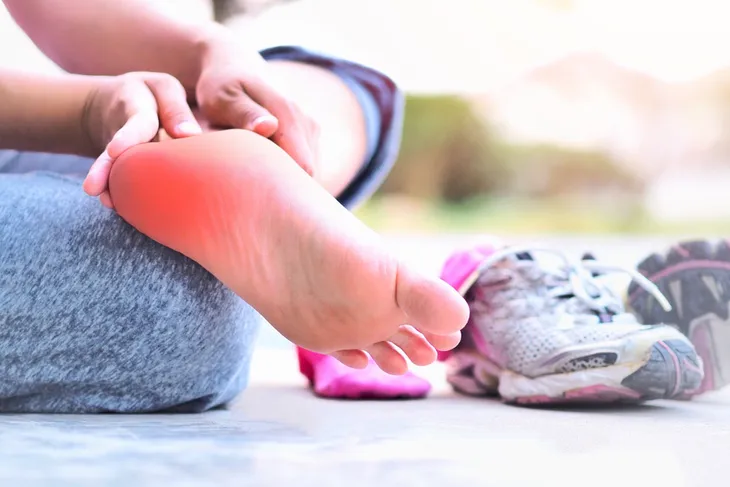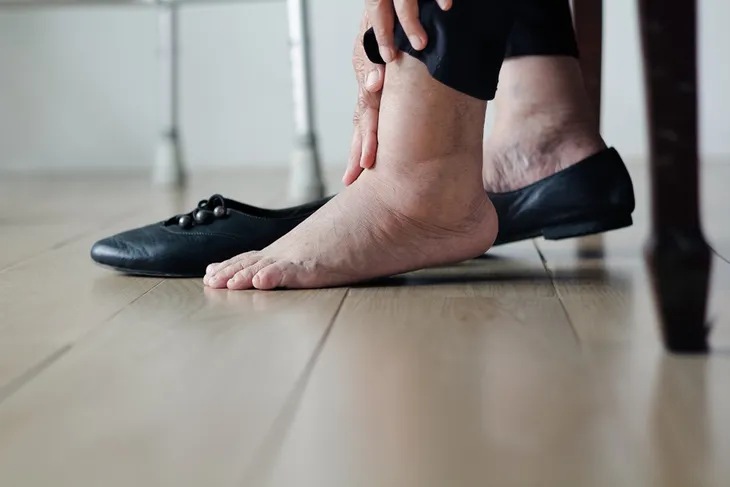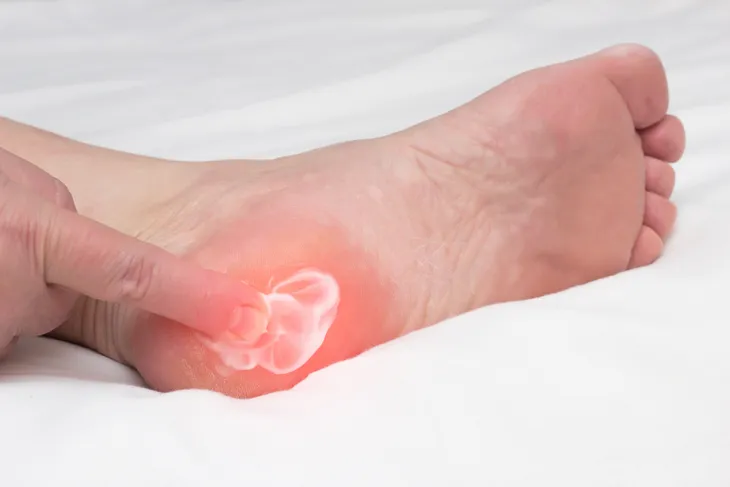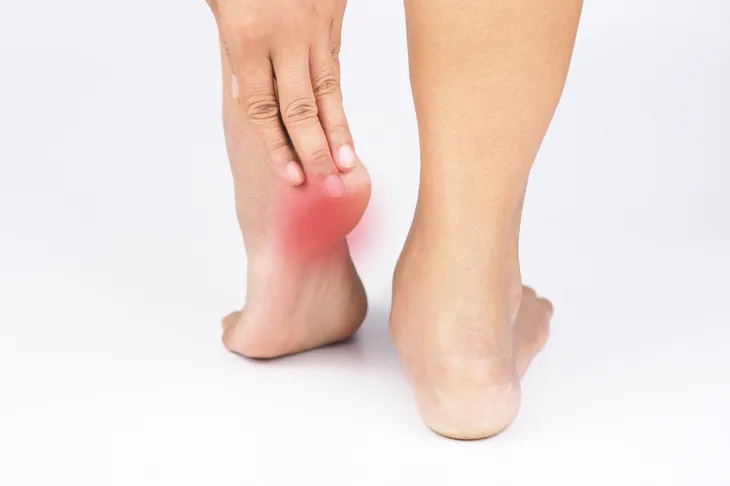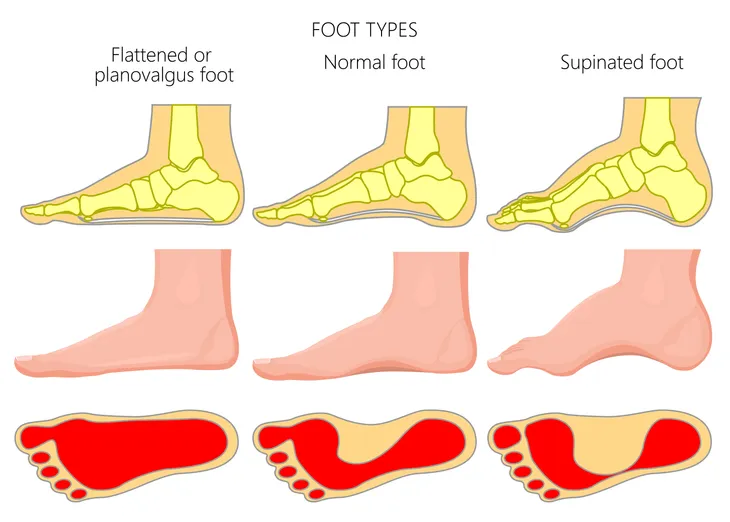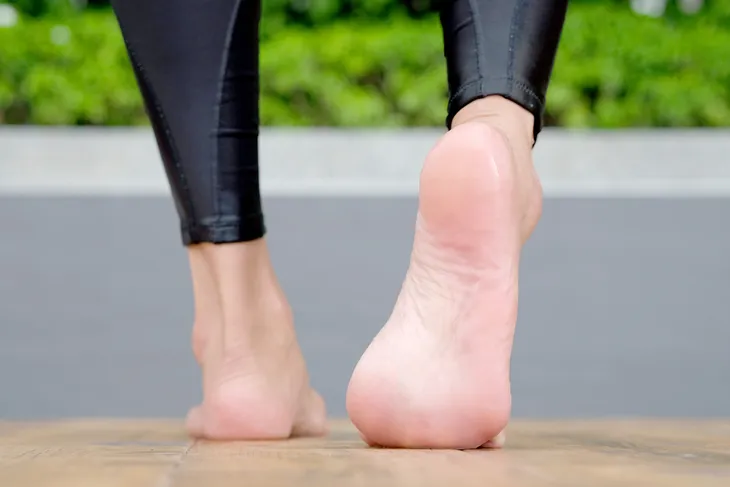Our feet are a valuable part of our body. They serve an important function by providing us balance and allowing us to move around freely. As a result, it’s no surprise that our feet go through a lot of wear and tear, making them more susceptible to damage.
There are many different ailments, both minor and major, or even health conditions that can affect our feet. One of the most common is known as plantar fasciitis. To learn more about this condition, let’s take a look at the most common symptoms and causes…
What is Plantar Fasciitis?
Plantar fasciitis is one of the most common causes of pain in the heel. Before we dive into the symptoms and causes, let’s first discuss what plantar fasciitis is. The Mayo Clinic explains, “it involves inflammation of a thick band of tissue that runs across the bottom of your foot and connects your heel bone to your toes (plantar fascia).”
It’s a common condition among runners, as well as people who are overweight. It can also affect people who wear improper footwear with inadequate support in their feet.
Symptoms
Pain in Heel
The most common symptom of plantar fasciitis is pain in the heel. This pain is generally described as a “stabbing pain” that occurs on the bottom of the foot in either the front or center of the heel bone. However, Healthline also notes that some people feel it in their mid-foot area.
The pain will develop gradually over time and typically only affect one foot, but it is possible to have plantar fasciitis in both feet. In addition to a sharp pain, some people also feel an aching or burning on the bottom of their foot.
When the Pain Occurs
This stabbing pain will often be at its worst in the morning, particularly in those first few steps after waking up. This is often referred to as “first-step pain,” says WebMD. The pain can also be triggered by long periods of standing or when moving from the sitting position to standing.
Not surprisingly, the pain generally gets worse after exercising even though it might not act up during exercise.
Swelling and Inflammation
Plantar fasciitis can also cause heel swelling and stiffness. This inflammation will likely flare up after prolonged activity and will make climbing stairs more difficult.
Plantar Fasciitis and Heel Spurs
Plantar fasciitis often leads to heel spurs. Healthline describes heel spurs as “a hook of bone that can form on the heel bone, or calcaneus, of the foot.”
VeryWell Health states that about half of the people with plantar fasciitis will also suffer from a heel spur. “When the plantar fascia becomes chronically inflamed, a heel spur can grow at the attachment point between the fascia and the calcaneus (heel bone),” writes the source. The best way to prevent a heel spur is to have the plantar fasciitis treated early.
It Can Mimic Heel Pain Syndrome
Plantar fasciitis is sometimes misdiagnosed because there are many other conditions that showcase similar symptoms, says VeryWell Health. Other conditions like heel pain syndrome and heel spurs are sometimes overlooked and can sometimes offer a more accurate diagnosis.
For example, heel pain syndrome “is a chronic condition that comes on slowly over time and is generally caused by faulty foot and ankle biomechanics rather than overuse,” writes the source.
Causes
Excessive Training
We mentioned previously that plantar fasciitis is common among runners and this is because running places a lot of stress on the heel, however it can also be caused by other types of exercise that also put stress on the heels or the attached tissue. The most common types of exercise responsible for plantar fasciitis are long distance running, ballistic jumping activities, ballet dancing, and/or aerobic dance. These can either cause plantar fasciitis or lead to an earlier onset of it.
Obesity or Excessive Weight Gain
There are many reasons that obesity is harmful to our health which is why we should always try to maintain a healthy weight. The most obvious reasons are to protect against diseases and health problems like heart disease, diabetes, high blood pressure, and some cancers. Yet another reason to avoid excessive or rapid weight gain is because it’s also one of the main causes of plantar fasciitis.
Foot Mechanics
Certain foot mechanics can cause a person to develop plantar fasciitis or put them at a higher risk. Things like having an unusually high arch or abnormally flat feet can affect how the weight is distributed when you’re standing. They might cause more stress than necessary on the plantar fascia.
In addition to the structure of a person’s foot, HealthLinkBC says the way they walk or stand can also affect whether or not they develop plantar fasciitis. For example, excessive pronation which is when a person’s foot rolls inward too much when they walk. Tight Achilles tendons or calf muscles can also cause plantar fasciitis.
Too Much Tension
A normal and healthy plantar fascia will resemble a bowstring, located in the arch of the foot to provide support and help absorb shock. If there’s too much tension or stress on the plantar fascia, it will cause tears to form. “Repetitive stretching and tearing can cause the fascia to become irritated or inflamed, though in many cases of plantar fasciitis, the cause isn’t clear,” writes the Mayo Clinic.
People who have tight Achilles tendons, the tendons attaching the calf muscles to the heels, will likely experience plantar fasciitis. To help combat this, Healthline recommends wearing shoes with soft soles and lots of arch support.
Age
It’s possible for plantar fasciitis to arise without any obvious cause, but as with many health problems, there are factors that can increase a person’s risk of developing this condition. One of the most common factors is age. According to the Mayo Clinic, plantar fasciitis is most common in people between the ages of 40 and 60.
Certain Occupations
Along with age, people who work in certain occupations have a higher risk of developing plantar fasciitis. These would be jobs that require people to spend long periods of time on their feet such as, factory workers, teachers, or nurses. Any person who works in a job that spends long hours walking or standing on hard surfaces can be damaging to their plantar fascia. It can also occur in women who wear high heels on a regular basis.
The best way to combat plantar fasciitis and ensure your feet remain healthy is to wear the proper footwear. It might not be the fanciest looking footwear or the cheapest option, but it’s necessary for people in these positions.
